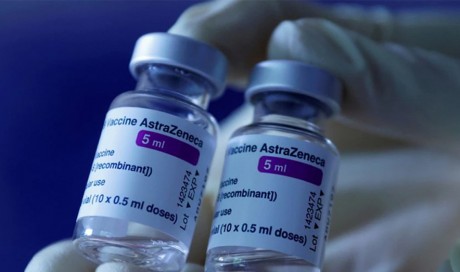3. Ginger
Ginger has incredible anti-inflammatory and anti-oxidative effects. Ginger contains heart-protective compounds like shogaols and gingerols, which can effectively prevent plaque buildup and unclog arteries by reducing total cholesterol. According to a study published in the Journal of Nutrition in 2000, researchers found that ginger extract could reduce aortic atherosclerotic lesion areas, cholesterol and triglycerides in the blood, LDL-linked fat peroxides, and LDL aggregation.
4. Cayenne pepper
Something spicy can also help unclog your arteries. The compound capsaicin found in cayenne pepper can help reduce LDL cholesterol in the blood. Cayenne pepper can also lower your risk of stroke and heart attack, and improve blood circulation. Also, highly-active antiretroviral therapy (HAART) with HIV protease inhibitor ritonavir is associated with accelerating atherosclerosis and pulmonary artery hypertension. A study published in 2009 found that capsaicin could help prevent pulmonary and vascular complications associated with HAART drugs.
5. Lemon
Adding lemon juice in your morning water is a healthy habit and good for your heart. Lemon is known to reduce blood cholesterol levels, and it helps the arteries by preventing oxidative damage. Lemons are also a great source of the potent antioxidant vitamin C. High doses of vitamin C have been found to strengthen arteries, reduce total cholesterol, increase high-density lipoprotein (HDL), inhibit platelet aggregation, and reduce inflammation.
6. Cinnamon
Cinnamon can help reduce many risk factors associated with atherosclerosis and heart disease. A 2003 study published in the journal Diabetes Care in 2003 found that either one gram, three grams, or six grams of cinnamon daily can lower glucose, triglycerides, LDL cholesterol, and total cholesterol in type 2 diabetics.[16] The study observed 60 diabetics for a 40-day period. Researchers concluded that cinnamon can help reduce the risk factors of cardiovascular disease.
7. Ground flaxseed
Flaxseed is another important food for heart health. Ground flaxseed can help unclog arteries with high fiber. It is also a good source of alpha-linolenic acide, an omega-3 acid that can lower inflammation and blood pressure. In turn, arteries will not become clogged. In a 1997 study published in the journal Atherosclerosis, researchers found that flaxseed lowered the development of aortic atherosclerosis by 46% in rabbits.
Researchers concluded that modest flaxseed supplementation is an effective treatment for reducing hypercholesterolemic atherosclerosis. Also, it is a good idea to grind your flaxseed. They contain greater amounts of omega-3. On the other hand, the polyunsaturated fats in pre-ground flaxseeds will break down over longer exposure to oxygen, and it can become rancid.
8. Fermented cabbage
Kimchi is a popular probiotic Korean recipe that includes fermented cabbage and hot peppers that has been found to slow the atherosclerotic process. A 2007 study published in the Journal of Agricultural and Food Chemistry found that an active compound in kimchi called 3-94-hydroxy-3,5-dimethoxyphenyl can help prevent the development of aortic atherosclerosis in high-cholesterol-fed rabbits.[18] Fermented cabbage has also found to degrade toxic chemicals, including bisphenol A and the insecticide chlorpyrifos.
9. Sesame seed
Sesame seeds can help unclog a blocked artery. Evidence shows that they can help prevent the progression of atherosclerosis. A three-month animal study published in the Journal of Medicinal Food in 2006 suggests that the fatty acid content in sesame oil could effectively inhibit atherosclerosis lesion formation, blood cholesterol, triglycerides, and LDL cholesterol levels in mice.
10. Pomegranate juice
The high antioxidant content and punicic acid in pomegranate juice are thought to help decrease plaque formation, unclog arteries, and fight atherosclerosis. Pomegranate juice also contains important nutrients for heart health, such as magnesium and selenium. In a randomized, double-blind, parallel study published in the American Journal of Cardiology in 2009, researchers found that drinking 240 milliliters (ml) of pomegranate juice daily for up to 18 months slowed the progression of carotid artery disease for patients at risk of coronary health disease.
Other Natural Remedies for Clogged Arteries
Other foods that unclog your arteries include asparagus, avocado, broccoli, chia seeds, fenugreek seeds, and coconut oil. Dietary supplements and nutrients that can help with atherosclerosis include methyl donators like vitamin B6, choline, folic acid, and vitamin B12, as well as antioxidants, such as vitamin C, vitamin E, lutein, zeaxanthin, grape seed extract, and pine bark extract.
Other important nutrients include L-arginine, vitamin D, vitamin B3, fish oils, and coenzyme Q10 (CoQ10). Nutritional chelation is also a high-dose nutrient technique that supports plaque removal. Other supplements include magnesium, selenium, resveratrol, copper, chromium, and trimethylglycine.
Finally, exercise is considered just as important as dieting for unclogging arteries. Exercises that reduce stress are important, including meditation, yoga, tai chi, and qigong. Aerobic exercises, gardening, walking, or running can also help combat atherosclerosis. Exercise for about 30 minutes daily for five days a week.
Share This Post











